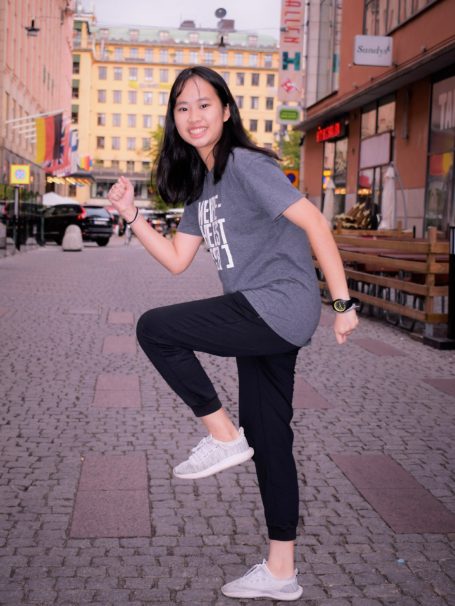Li Yu from China
For full interview read below.
Who is ordinary Li and what is a normal and day like back home?
Li: I go to class and do my homework. In my past time, Tan (Li’s teammate) and I get together and work on the project and we talk with each other a lot. We also do some experiments.
When I relax I like to read books or watch television and films. To practice my English I try to understand everything they say in the films.
How did you hear about the Stockholm Junior Water Prize?
Li: We were working on our project and a teacher told us that there is a contest, Stockholm Junior Water Prize, and we could enter with our project. We sent in our project to SJWP China and we competed against other schools in China and we got the chance to come to Stockholm.
How did you get the idea for the project?
Li: We live in the cities and so it is not very common to see biogas pools in the City. By chance, we attended a school activity. We came to know about the biogas pool and we were curious about its ability to turn sewage into clean energy. So we went along with our curiosity and we found that biogas pools are very common in the European area and in developing countries.
We also found out that the fermentation process in the biogas pool is not very safe or stable and is even known to cause people death. So, Tan and I created a project team and put forward our idea on how to improve the fermentation process in biogas pools. After doing some experiments we found that with methane put in at a suitable time into the fermentation process with our automatic system, the fermentation process improved as well as it increased the concentration of methane.
What was the biggest challenge with their project?
Li: There were many challenges and I can’t consider which one to be the biggest. I remember sometimes we were not familiar with the electronic components of our automatized system. So we asked our teachers and some seniors for help and with their help, we finished our system. The first time we did experiments, we didn’t have the power to activate the system, so it could not play its part. It didn’t produce any gas. We were scared that the system was broken but with help, we were able to fix it.
What has been the best moment so far in the competition process?
Li: The experiment data. Then we were sure that our method was of good use in the fermentation process. We felt so happy, we jumped around in the lab.
How do you think this competition has changed or impacted you?
Li: We learned more about Biogas pools, we created and made the system by ourselves, we did the experiments and we learned how to research and read papers for information and we even learned about the electrical components. Now here in Stockholm, we get the chance to communicate and connect with more foreign friends.
Many students in China don’t get the chance to attend the competition because they often study the whole day and give their full efforts to pass the final exam to get into a good University. So many students in China don´t get many chances to attend leisure activities outside of school. But it was during an after-school activity, we had our idea for our project and I got to know that I really, really, like to study water.
If you could communicate with every single person in the world under 35, what would you want to say to them?
Li: Let me think… I would say water is a part of our body.
Interviewee: Li Yu
Interviewer: Edward Veem
Country: China
Photographer: Lila Roumeliotou




